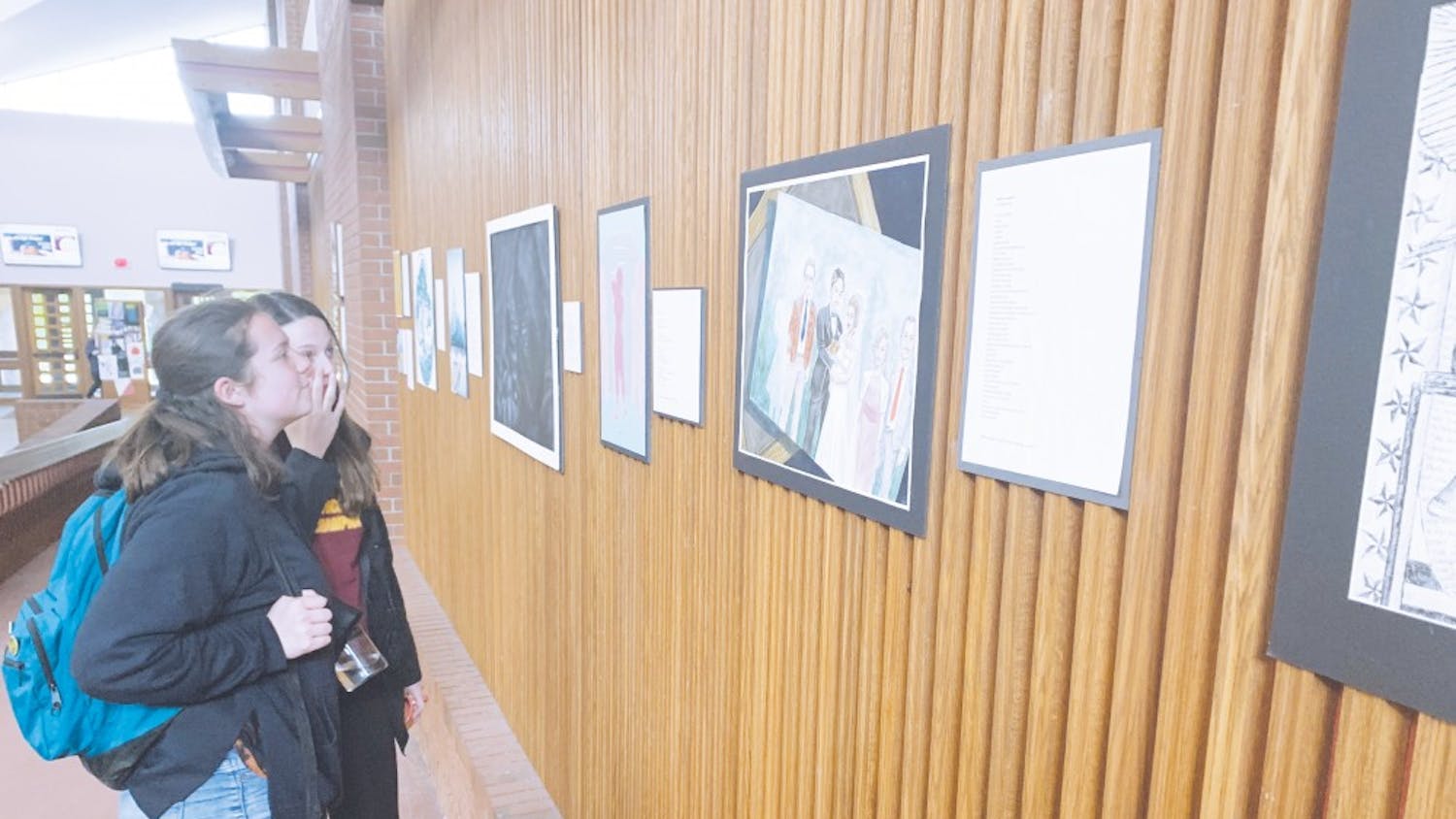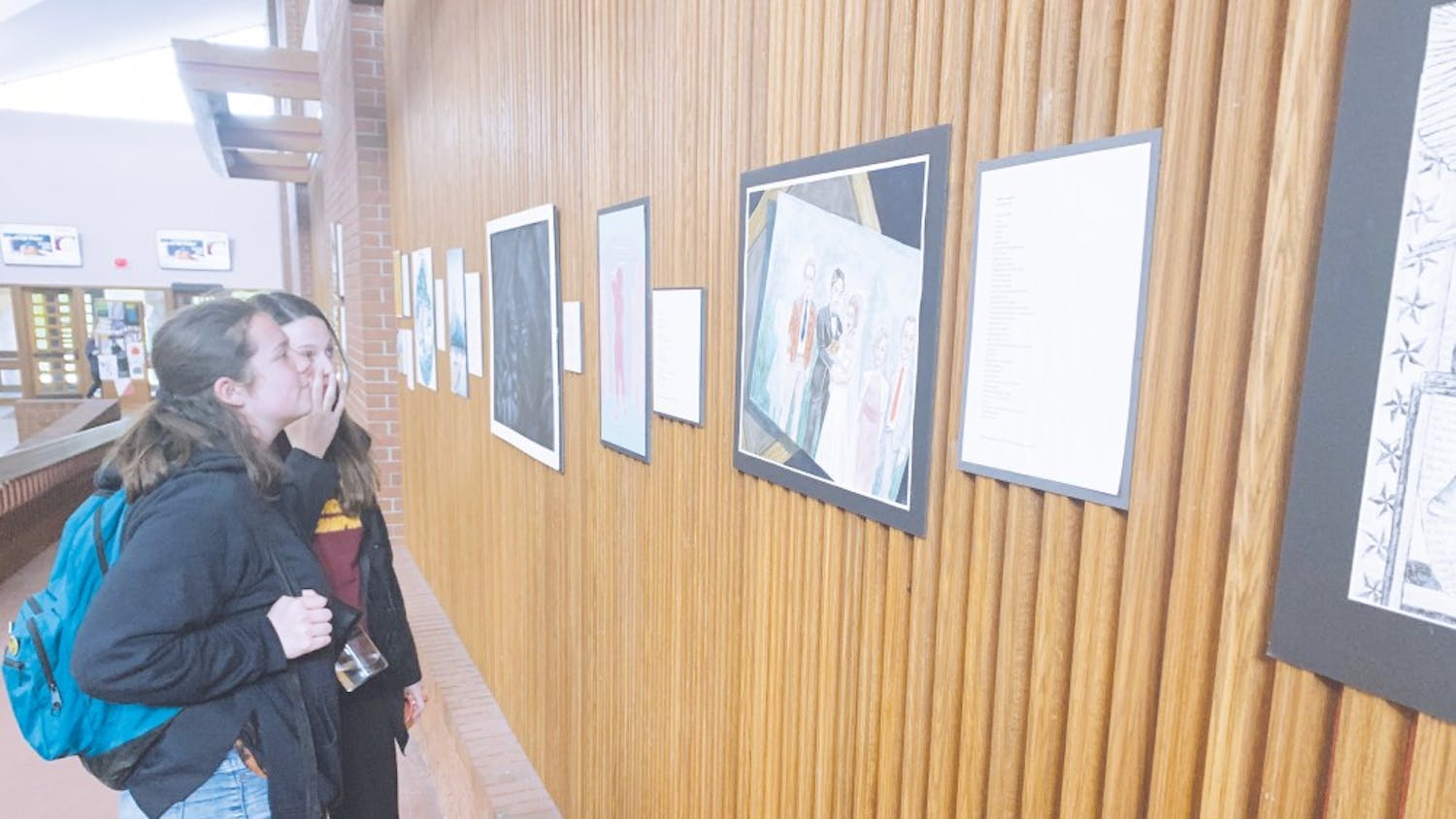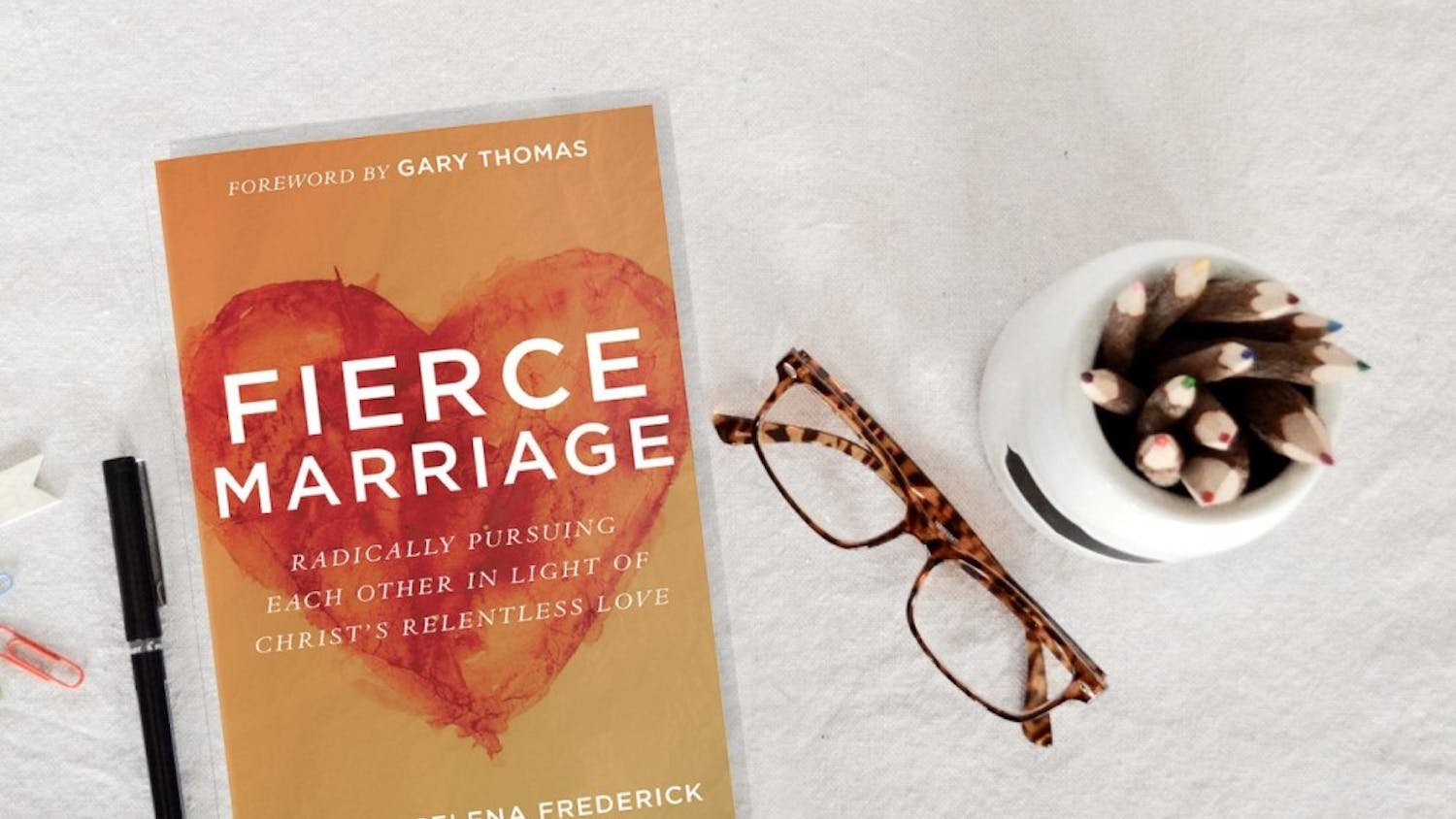By Veronica Toth | Echo
Senior biology major Shanté Major breathed deeply before stepping onstage for her WOW chapel performance. Dressed in red, her eyes flashing, Shanté pulled on a different persona as she performed her newest piece of spoken word. Junior Tyler Smith played God, and Shanté personified the first-world church. Together, the two brought Shanté's poetry to life with well-timed dramatic flair. Their dialogue urged the audience to step out of complacency.
Shanté began writing poetry at a young age, when her mother convinced her to enter a competition at church. "It was about why God made me, and it was all rhyme-y," she remarked of her first attempt. Even so, she won first place.
But Shanté's subgenre of choice, spoken word poetry, is no delicate verse. Because the art form emphasizes dramatic performance, spoken word poets lift their voices and choose impassioned words to craft a narrative. Spoken word often borrows the quick pace and intricate wordplay of rap music.
At a church camp in 11th grade, Shanté experienced spoken word for the first time: "Almost Saved" by Ezekiel Azonwu, an intense and unabashedly Christian piece. She fell in love with the brash and powerful delivery. Six months later, after watching spoken word performances over and over and soaking in the cadences and the rhythms, Shanté sat down and began to write her first poem.
"I read it through and I thought, 'I don't remember writing this,'" Shanté says, her hands bouncing up and down. "It wasn't me writing, and it was amazing to me that that could happen. I was like, 'Whoa, I can do this with words? That's great!'"
The poem, titled "True to You," is still Shanté's favorite piece of her own.
"I struggled a lot through middle and high school with being myself," she admitted. At church, especially, Shanté harbored an enduring feeling of being outcast. "True to You" was both an expression of that insecurity and a resolve to authenticity.
That confidence expressed itself in outreach. "I used to be introverted," she said of her pre-"True to You" days. She laughed deeply, infectiously. "I'm naturally shy, but no one believes me."
It's a difficult claim to accept. Shanté seems to know everyone on campus-from the international students to admissions staff. "I know what it feels like to be left alone, and I didn't ever want anyone to ever feel like that, so that's how I made a lot of my friends," she said, for once not prefacing this statement with her signature belly laugh. "One of my goals in life is to be the person I needed when I was younger."
Shanté sees her poetry as a way to fulfill that vocation: "(Poetry is) the way I hear from God. He breathes out, and I breathe in."
After writing a poem, Shanté double-checks it against the Bible. She considers the use of words to be a reverent act. God spoke the world, and in turn, Shanté speaks his word. She sees herself as a teacher, referencing a verse from James that speaks of the heightened responsibility for those who instruct. "I want to make sure the words people hold onto are biblically accurate."
Sometimes Shanté writes spoken word poems for specific events. She has performed seven times in chapel in her three-and-a-half years as an undergraduate but still begins to panic about a week before each new engagement. Because Shanté doesn't use manuscripts when she performs, she repeats her poem to herself compulsively in the days before her performance, wearing headphones to disguise the appearance of talking to herself.
When she finally takes the stage, adrenaline rushes through her body. She performs the poem as you would sing a familiar Taylor Swift song in the car, without needing to focus on the lyrics.
"Her style very much involves contrast of itself," said wingmate and junior Liese Erb, who is the first person Shanté goes to when inspiration strikes. The two often sit in a room together-Liese on her lofted bed, listening, Shanté reading and occasionally asking for input. "You think (the piece) is one way, and then she flips you over and you're like, 'Oh-she was talking about this the whole time.'"
Shanté crafts her pieces carefully, often using words with double meanings to amplify that surprise factor.
"Shanté has a gift for taking conviction and transforming it into beautiful and complex word pictures, pictures that make you want to do something," said senior Carli Stewart. "Every piece is a journey, surprising, convicting, beautiful and true. When Shanté takes her audience on that journey, they emerge both impressed with her delivery and motivated to change."
Although she's majoring in biology because it's practical, Shanté's dream is to be part of the Passion for Christ Movement, which holds spoken word workshops and performs original poetry across the country. She's discovered many of her favorite performers through the organization.
"I want to do something where I can help people learn and help people express themselves. I don't know how I'm gonna do that, but I'm gonna figure it out," she mused.
For now, Shanté Major will breathe in and out and before tackling her Organic Chemistry homework. She might also sit down to gather some thoughts on paper.
They could be the beginnings of a new poem.






